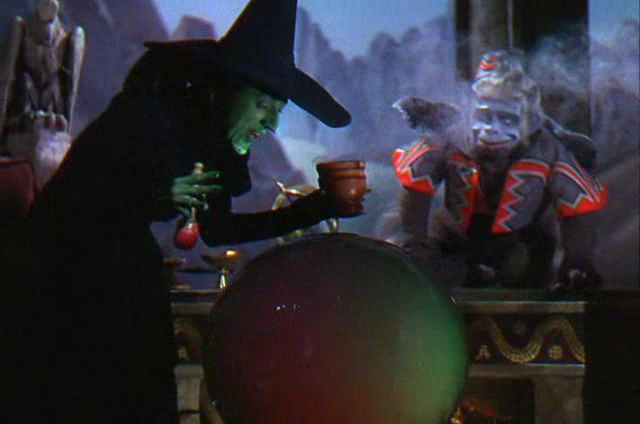...Much More Likely to Get Where I Want To Go
I am an ardent fan of outlining my work before I start writing it. In the current writers' vernacular, most would consider me a "plotter" rather than a "pantser." (This is not to be confused with the urban slang word
pantser used to describe a person who pulls down the already sagging pants of a gangsta wannabe currently displaying a generous portion of his underthings to the world.)
For a lengthy but interesting treatise that gives equal time to the merits of both camps, check out
Cindy Myers' "Plotter or Pantser" post. In essence, it all boils down to two things:
A plotter plans things out in advance.
A pantser starts writing and flies by the seat of his or her... You get it.
I have tried writing sans outline with only a general idea of where I wanted to end up. I even finished the book. I now have 85,000 words that I refuse to inflict on anyone. They are destined to sit on my hard drive indefinitely, because what the book needs is for me to apply one or both of the following Plans to it and beat it into shape. Which will require pulling threads of stories that don't work right, re-structuring major characters, and editing with an eye toward structure and salability. All of which sounds like more work than I feel like doing at the moment. And so, anarchy & chaos continue to reign supreme in that particular project.
I don't look at an outline as a "fill in the blanks" novel-writing tool, though I know several authors that do, and that works for them.
(A side note: when I write non-fiction books, I make a detailed table of contents, expand it as much as possible, and list questions that must be answered for the reader by the end of each chapter. That, then, becomes my working outline and writing the book is very much like a fill-in-the-blanks kind of project. The process works well for me for non-fiction, but it takes all the fun out of fiction writing, in my opinion.)
When writing fiction, I operate under the assumption that in order to ultimately work, a story needs to have a framework that holds it in place.
Furthermore, each major character that populates the work not only propels the plot forward, but also has his or her own story line that continues even when the character isn't Center Stage.
Therefore, though it sounds stuffy, boring, and the very antithesis of the creative process, I rely on an outline to keep my story structure in place. It frees me to focus on the minutiae of building sentences and crafting nifty vignettes within the story without losing sight of the Point.
In other words, having an outline gives me a road map from beginning to end. It allows me to take interesting short side trips to explore points of interest along the way, but ensures that I don't stray too far off track.
Plotting Plan 1: Use Tried & True as a Launching Pad.
I am a huge fan of using the Hero's Journey (or a variation therof) as a "cheat" for outlining my story. The reason for this is that, at its core, the Hero's Journey encompasses and embodies what humans have come to expect from a story. It provides a useful, endlessly adaptable framework on which to hang our writing.
[If you're not intimately familiar with what I'm talking about, the
Hero's Journey Wikipedia page is invaluable for brainstorming and outlining. The content on the top of the page explains the basics of the structure. But toward the middle of the page there are Other Formulations that offer alternatives and structural nuances.
Devotees of Joseph Campbell may insist that there is
so much more to the Hero's Journey than Wikipedia. Well,
duh. But when outlining a story, I'm not doing an English major's graduate thesis. I'm just looking for landmarks so I can plan
my hero's journey.]
I don't see using the Hero's Journey as writing with a formula. I consider it more like following tried and true guidelines to tell my tale. The structure can be mutated into myriad story possibilities, but if my story utilizes any of the 17 stages (not all stages are present in all stories -- even in the illustrative source material), then I feel it should do so in the correct sequence.
That's how I use the Hero's Journey as my outline. I take my premise / story / idea and write out the gist of what happens. Then I compare it to the accepted Hero's Journey models and see which fits best. That enables me to make an informed decision about what portions to combine or leave out all together. I can also see potential errors in structure from the beginning.
I'll fill in the basic story details following the Hero's Journey as quickly as possible so I can get writing. If I get a *brilliant* idea for something new halfway through my story, I'll hold it up to the Hero's Journey lens to see if it helps or hinders my original vision / intent.
A further note: I also use a modified version of the Hero's Journey to plot individual character arcs within the larger story. Again, I find it invaluable in keeping me on track, in forcing me to put my characters into difficult situations, and in making sure that stuff happens without me charging off tilting at plot windmills.
Plotting Plan 2: Story Beats / Screenwriting 101
A second tool I use for outlining and staying on track is a slightly modified screenwriting story beat sheet.
I LOVE this, by the way. It is absolutely invaluable for figuring out all the plot twists and major character arcs before delving into the deep story.
Since a screenplay is no more than 110 pages long and each scene is approximately 2 - 3 pages, that means the meat of the story must be told in 45 - 50 bite-sized pieces. There are a million screenwriting books out there, each trying to tell you both how to both play by the rules and how to break them, but the fact remains that the Western movie-going public has specific expectations for their stories.
I use a grid of 1-inch squares to plan the beats of my scripts. (Truth be told, my grid is an old calendar. A month & a half, with 1 day allotted to each scene / beat = completed story outline.)
The 45 square grid helps me visualize my whole story. It shows me where my pace is too slow, illuminates gaps in my original logic, and forces me to solidify my subplots.
When I know where the major encounters of my story are, how my main character moves from Point A to Point B, what trials (s)he encounters and how they are surmounted, who the antagonist is, and how things are ultimately resolved for maximum impact to both character and audience, then I can get writing.
Sometimes I'll write the screenplay, if I want to focus on the visual elements of the story. Other times, I'll write the novel, if I want to explore the inner lives of my characters. Either way, knowing my 50 major landmarks along the way keeps me from digressing into tangents and keeps my stories from dissolving into anarchy or chaos.
I've found that, contrary to expectations, working from either a Hero's Journey outline OR a story-beat grid does not leave me uninspired. I generally do both the Hero's Journey work AND a story beat plan before beginning.
Then, each chapter or scene begins with what's already mapped out on my grid. It completely alleviates the blank-page syndrome. It breaks my writing up in bite-sized, easily attackable pieces, and tells me what needs to be done to move the story on.
I follow the outline / story beat grid for the first draft. Then I embellish and explore short new paths for various characters on the second draft. After that, it's just a case of a solid edit and the thing is done!
Plotting my story before I begin is the best exercise I've found to determine whether or not I have a story
worth telling. It also helps keep me on track so I can eventually #Write2TheEnd, instead of leaving my characters with their pants down.
What about you? Are you a Plotter or a Pantser? What are your favorite tried-and-true plotting tools? Or, do you just wing it? Share your insight or pants-losing stories with me!
 * Did you like the book? If so, what worked for you? If not, at what point did the story lose you & never regain your interest?
* Did you like the book? If so, what worked for you? If not, at what point did the story lose you & never regain your interest?














